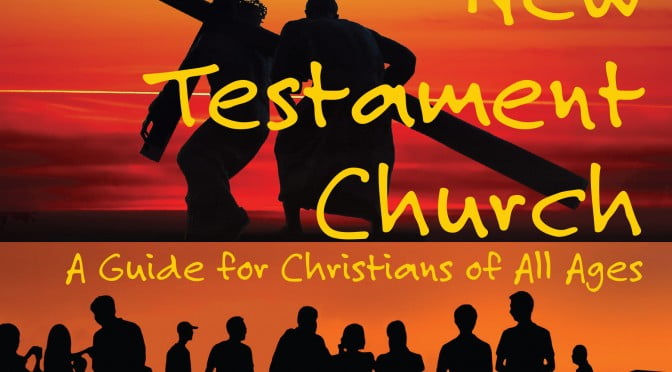8:55 AM When I was a kid and learning how to dive from the high dive into the swimming pool, I would stand at the edge of the diving board petrified of what lay below me. Eventually I took a big breath and — I made the plunge. “Gee, this is fun!” I told myself as I clambered my way back up the diving board steps. But the real heroes of this story are my friends who stood on the pool deck and encouraged me to step out in faith.
I find that learning to trust God for change in our very traditional churches is like learning how to dive. The hardest part is simply letting go of our doubts and reservations and trusting God. Let’s say your church is currently having to decide between take a step of obedience to what the Scriptures clearly teach or else maintaining the traditional set-up. You may agonize over your uncertainties and insecurities, but the easiest way forward is simply to step out and take the plunge. God is there to support those who trust, not in their own security and certainty, but in His.
In this regard, I find it interesting that Paul mentions three groups of Christians in the Thessalonian church (see 1 Thess. 5:14). There were the “idlers,” the “fainthearted,” and the “weak.” Let’s look at the “idlers” for just a moment. The term Paul uses here often carries with it the notion of “not in order, not conforming to the established law or practice, being insubordinate.” Apparently these people were insisting on their own way and were “out of step” with Paul’s injunctions. Some perhaps were also lazy and were refusing to obey the command of Paul to “work with your own hands.” In any case, these good folk had to be dealt with, and dealt with directly.
Now please notice the verbs that Paul uses with reference to each of these groups:
-
The idlers are to be “admonished.”
-
The fainthearted are to be “encouraged.”
-
And the weak are to be “upheld.”
There is something very important going on here, and it is easy to miss. The verbs must match the nouns. In other words, we fail in our duties should we, say, admonish the fainthearted or uphold the idlers. People in rebellion against God are not to be coddled. They are to be admonished (noutheteo). This verb is a Pauline word, occurring 7 times in his writings. It always has a sense of correction, but the correction is always based on instruction. It can never be correction alone or instruction alone. And it is never to be done in a vindictive or judgmental spirit.
If you are a church elder, you know exactly what I’m talking about. There will always be people who will refuse to obey the Word, so steeped are they in tradition, or in sin, or in whatever. Sometimes these people have been in the church for years and years and believe they are above reproach — and correction. But the fact is that none of us is ever above correction in some area of our walk with Christ. We all act against the will of God in some form or another. But that is no excuse for passivity.
Another observation, and it too is vitally important. Please, please note that Paul is not telling the church leaders to “admonish the idlers.” A thousand times no! His exhortations in this verse have the whole church in view (“We appeal to you, brothers and sisters ….”). This means that, while our congregational leaders will obviously play a huge role in moving the church forward in obedience to God’s Word, the obligation to instruct and correct each other is ultimately the responsibility of the whole congregation. This means that I, who am not a local church elder, still have the privilege and responsibility of speaking up when I sense the Lord is leading me to offer instruction and correction, under the leadership of my elders of course. There is no evidence that Paul would have ever delegated this responsibility to the leaders alone.
Now think about your own local church. Many Christians find it hard to obey the simple teachings of the Scriptures. Moreover, they find it hard to accept advice, instruction, or correction from others. In such situations, Paul exhorts the members of the church to speak truth to one another and to do so in a patient and long-suffering manner. Let there be instruction! Let there be correction! Let’s move forward as congregations into those areas of obedience that are clearly taught in God’s Word. Our churches will be happier and healthier if we do so — together.

